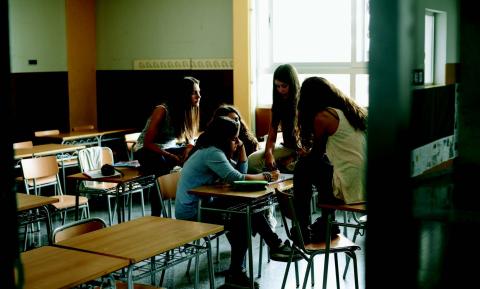Special Education Teacher Shortage

Across the nation, teacher shortages continue to plague all areas of education. Within special education, these shortages are exacerbated by higher burnout and attrition rates. For example, the annual teacher attrition rate is estimated at approximately 10 percent for special education teachers as compared with 6 percent among general education teachers, meaning that special educators are leaving their jobs at almost twice the rate of their general education counterparts. In many cases, schools have more special education vacancies than qualified applicants, often leaving them to fill these positions with inexperienced and, sometimes, under-certified individuals (such as those with emergency certifications) or increase class size.
Aside from personal reasons, factors associated with teacher attrition include poor administrative support, substandard working conditions (such as unmanageable caseloads, overwhelming amounts of paperwork), limited curricular and technological resources and inadequate professional development opportunities.
Centennial School, governed by Lehigh’s College of Education, offers an innovative approach to increasing teacher retention whereby trainees participate in a two-year residency or apprenticeship-style program infused with mentoring, coaching and feedback from experienced and talented teachers and supervisors. Trainees engage in a broad range of pedagogical activities under dense supervision, allowing them to cultivate essential skills. Administrative support steers the training program through the establishment of an instructionally-rich professional learning environment, allocation of appropriate resources, differentiated professional development activities and execution of effective policies and procedures. The school's supportive, didactic culture creates a prototypical context for advancing teaching and learning.
Centennial’s rigorous training program begins with the establishment of clear expectations for staff performance. Its espoused beliefs and values provide its institutional identity, dictate how teachers and administrators approach their work and contribute to the norms for how teachers interact with students, their parents and fellow faculty. For example, Centennial teachers believe that students can meet the expectations set for them, learn to manage themselves, think before they act, make positive changes in their lives and be held accountable for their actions if they are taught the rules by which to abide.
Centennial teachers believe that they can make positive—and sometimes profound—differences in the lives of their students; talk positively about students, their families and their colleagues; change student behavior by changing staff behavior; examine the effectiveness of their efforts through progress monitoring, and expect conflicts to occur in the workplace and successfully resolve those conflicts by focusing on the issues and sharing responsibility for professional interactions. Expected staff behavior is codified in the Centennial School Handbook, which is updated annually. All faculty receive lavish praise, encouragement and recognition of work consistent with Centennial’s philosophy. Also, Centennial’s many traditions, rituals and celebrations further support the school ethos. The events are important symbolic representations of Centennial’s values.
All Centennial teachers function within an organizational structure centered around teams (elementary, middle, high school), whereby the dynamic contribution of each teacher is valued and the synergistic relationship among team members encourages differences of ideas and opportunities for growth.
Teachers are interdependent and work collaboratively to deliver evidence-based practices to promote student learning. Veteran teachers and administrators model behavioral and instructional strategies, positive language and problem solving. Members of the administrative team provide performance feedback through formal and informal classroom observations. Trainees also have the opportunity to observe and debrief with expert teachers. As a trainee, novice teachers have reduced workloads and are provided additional assistance and feedback. As novice teachers demonstrate mastery of instructional strategies, a gradual release of responsibility shifts from mentor to trainee.
Many new special education teachers enter the profession and find they are ill-prepared for the responsibilities they face, particularly addressing their students’ behavior needs. Professional development is a key aspect of Centennial’s training program, which aims to prepare teachers in fundamental practices that support robust student academic growth and the development of prosocial school and classroom behavior. With input from teachers, the administrative team creates the topics for the staff development calendar. Professional development is presented by members of the leadership team, differentiated according to teacher knowledge and experience, and designed to bridge the research-to-practice gap in effective school practices.
Professional development activities are collaborative, active learning opportunities are held weekly for 2½ hours, and focus on effective teaching practices that have been demonstrated to have a significant impact on the performance
of students with disabilities.
The integration of technology to engage students is often a theme woven into the sessions. Topics discussed are revisited during weekly team meetings, reviewed during mentoring time and discussed through direct observation feedback provided by program coordinators in the succeeding weeks. Members of the leadership team routinely present on the research-validated practices used at Centennial School at state and national conferences.
While the influences contributing to the teacher shortage problem are complex, focusing on solutions aimed at teacher retention is critical to addressing the issue. At Centennial, the training program equips teachers with advanced skills to better meet the high demands of teaching in special education environments. Better prepared teachers are more likely to experience greater job satisfaction and thereby less likely to experience teacher burnout and exit the profession. ′
—By Julie B. Fogt, director of Centennial School